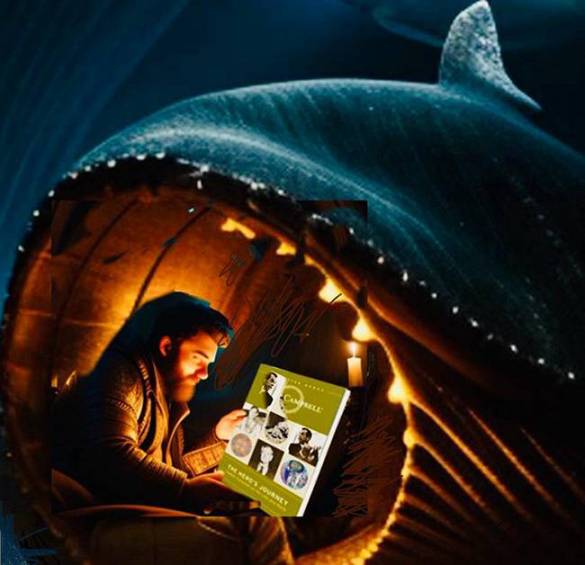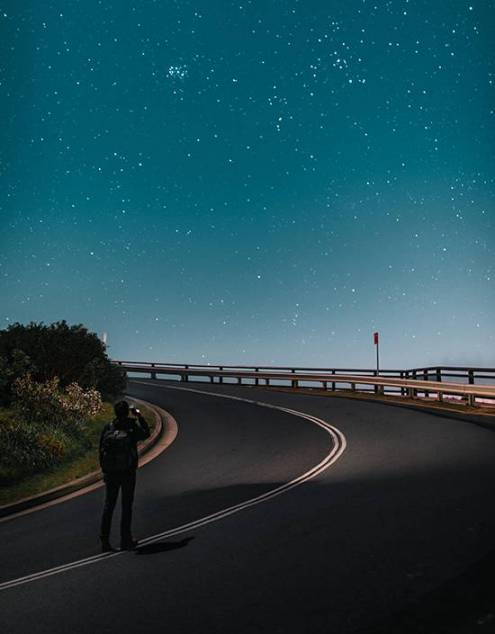The belly of the whale
Lately I have been preparing notes for a new class. You see, starting next week I will be teaching writing again at the Sunshine Place. I have all my past notes in one drawer and as I was leafing through them, a set of old notes fell to the floor. These were my notes on The Hero’s Journey by Joseph Campbell, whom I don’t remember if I read or studied in a seminar during my early days of studying Carl Jung around 20 years ago.
Who is Carl Jung and what do I have to do with him? Around 1992 or thereabouts, I found myself so exhausted. No matter what I tried I could get no rest. One Saturday morning I saw in the newspaper that Ateneo was holding a Jung Festival. It began with a lecture on mythology in Filipino films. Then there were other activities that I don’t really remember now. I remembered Carl Jung was a psychiatrist at the same time as Sigmund Freud, whose writings I had started to read sometime and didn’t really like. But since I felt a tremendous need to find something new to do, I decided to join the Jung Festival.

It turned out to be one of the best learning experiences I’ve ever had. I learned that Carl Jung and Sigmund Freud were once close friends but they had a falling out over something. I think it was in their interpretation of dreams, but I am not sure. I learned that Jung used the language of mythology—gods and goddesses—to establish personality types. I was led to the reading of Thomas Moore, James Hillman and Joseph Campbell, all of whom I loved. And reading Campbell, I might have discovered The Hero’s Journey.
If we were in the theater, I would say a “Hero’s Journey” has three acts: the first is the departure, where the hero hears a call to adventure but doesn’t know whether or not to accept it. Then the hero, who may be man or woman, enters the second act where he crosses over, encountering myriad little trials that soon form a huge crisis. To survive he or she must grow as a human being. Finally, after many battles the hero wins, and goes back to the world forever changed.

Somewhere between the second and third acts, there is a part where she/he doesn’t know what will happen next; where she/he is just sitting somewhere trying to figure out things. Is there something that will happen? For sure, there is! But when? Where? How? With whom? And what will be the result of that? I know things will change but in what direction? How will it happen? Will anybody help or must I tackle it alone? What am I going to do? It’s a mixture of a state of confusion and almost complete ignorance.
But there are no answers at the moment. It’s as though there is nothing for you to do but sit and wait. But what are you waiting for? This uncertain time is what Campbell calls sitting in the “belly of the whale.” That’s precisely where I am right now. Waiting for answers in the middle of a rather large crisis. There doesn’t seem to be any clear answers so I am in what feels like a cave without windows just waiting.
What am I waiting for? Or maybe, who am I waiting for? I believe it is the “goddess” named Clarity who will order the whale to open its massive jaws and let the brightest light shine in. Then I will see all the details. Then I can decide on what to do next. Maybe it will be the right thing or maybe it will be the wrong thing. I will just do as I have always done when I have had crises in the past. I will just get up, dust myself off, and start all over again until by accident, I stumble on the right thing to do.

What happens when you survive a crisis? You emerge a stronger person, either slightly or very highly different from before the crisis. Sending you a crisis can be the universe’s or God’s way of forcing you to grow. Campbell, who studied the mythology of many cultures, saw a universal similarity in different hero’s journeys. It was different in the language and details but similar in the basic patterns. So you see, having and surviving a crisis is an enriching human experience, and all of us can and will undergo a crisis at some point. We can get dragged into a hero’s journey at any age.
I think the most frustrating part is just being in the “belly of the whale” because that teaches us implicitly that not everything is within our control. That’s the most important lesson that I am learning now.


